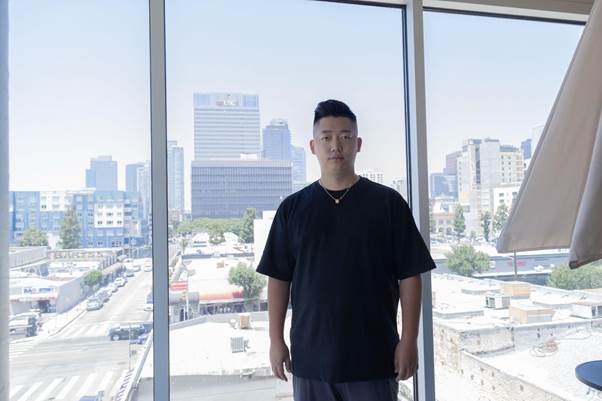Recently, Jinpeng Guo successfully completed his judging duties at the 2019 Dubai Dance Open, an international dance competition. As a top-tier event in the Middle East, the Dubai Dance Open is certified by the World DanceSport Federation (WDSF) and was held in early December at the JW Marriott Hotel in Dubai. The competition attracted over 800 participants from 32 countries. Jinpeng Guo’s invitation to serve as a judge at this prestigious event not only highlights his professional standing in the field of international dance adjudication but also demonstrates the growing influence of Asian judges in shaping international dance standards. This is Jinpeng Guo’s second time this year serving as a judge at a major international event, following his earlier involvement in the 2019 WIDC Dansinn International Dance Competition in Poland. His year-long experience as a professional judge showcases the high level of recognition his expertise has received in the global dance community.
Dubai Dance Week
As a significant platform for dance competitions in the Middle East, the Dubai Dance Open features a highly inclusive format. Since its inception in 2017, the event has become one of the most influential international dance competitions in the region. This year’s competition continued its innovative design by offering 14 categories, including children (9-11 years old), youth (12-15 years old), junior (16-18 years old), adult (19-35 years old), and four senior age groups (35+/45+/55+/65+), covering all stages of a dancer’s life.

Judge Jinpeng Guo
During the three-day event, Jinpeng Guo participated in the judging of various categories, including professional, youth, and senior groups. The competition adhered strictly to the WDSF international scoring system. Jinpeng Guo focused on key technical details such as the precision of hip-driven movements in Latin dances and energy control during rise-and-fall actions in standard dances. In terms of music interpretation, he evaluated not only rhythm accuracy but also the depth of emotional expression in the dancers’ performances, encouraging participants to break free from formulaic routines and showcase their unique artistic understanding.
In the youth group judging, Jinpeng Guo demonstrated a distinctive educational perspective. He systematically assessed the foundational training of dancers aged 12-15, focusing on core elements like the quality of weight transfers in Latin dance footwork and axis control in rotations. In standard dances, he scrutinized the stability of the dancers’ posture and their ability to maintain spatial awareness during movement. His feedback often included practical improvement suggestions, such as “Ensure the complete shift of weight on the 4th beat in the Cha Cha” or “Strengthen ankle control during the rising action in Waltz,” which were later adopted by coaches as focal points for training. These professional insights not only provided crucial guidance for the future direction of the event but also received recognition from international judges who resonated with his balanced approach to tradition and innovation.
In addition to the competition judging, the event’s innovative “competition + performance” model provided Jinpeng Guo with a platform to showcase his broad understanding of dance artistry. During the Gala dinner segment, where he served as a performance judge, Jinpeng Guo expressed his appreciation for the creative fusion of Arabic traditional dance rhythms with Latin choreography. While maintaining competition standards, he affirmed the artistic value of such cultural integration. In the post-event debriefing, Jinpeng Guo elaborated on his philosophy of balancing “technical precision with artistic innovation” and emphasized the importance of encouraging choreographic creativity that reflects regional cultural characteristics while maintaining the integrity of basic techniques.

WIDC Dansinn
Jinpeng Guo’s trip to Dubai was not his only international judging experience this year. Prior to the Dubai event, he was invited to serve as a judge at the 2019 WIDC Dansinn International Dance Competition in Poland, a prestigious event in the European dance community known for its strict technical standards and artistic requirements. As an important WDSF event in Europe, the competition attracted numerous top-level competitors in the professional category.
During his judging of the professional standard dance category in Poland, Jinpeng Guo displayed deep expertise. He meticulously evaluated the accuracy of dancers’ movement paths, body coordination during rotations, and ability to transition through complex formations, introducing the “dynamic balance” judging standard that emphasizes core stability during movement. In paired dances, he introduced the “breathing synchronization” metric, closely observing the energy transfer between partners. When assessing musical expression, Jinpeng Guo incorporated analysis of musical phrasing into the evaluation while balancing WDSF technical standards with encouragement for moderate innovation. For example, he acknowledged personalized adjustments in the Viennese Waltz when executed with reasonable artistic intent. This blending of traditional standards with contemporary developments offered a forward-thinking perspective that greatly enriched the event.
Jinpeng Guo’s continued invitations to judge two major international events reflect the dance world’s recognition of his professional ability. As an internationally recognized judge with an Asian background, he not only upholds WDSF’s technical standards but also appreciates the artistic expressions unique to dancers from different cultural backgrounds. His judging style, which combines professionalism and inclusivity, plays an important role in fostering global dance culture exchange and development.
Beyond his judging duties, Jinpeng Guo also shared his insights into the future trends of competitive dance with coaches and dancers at the post-event activities in Dubai. He pointed out that as dance becomes increasingly globalized, future events should aim to respect regional cultural differences while maintaining unified technical standards. His viewpoint was widely accepted by the experts in attendance.
From Poland to Dubai, Jinpeng Guo’s judging experiences in 2019 have not only reinforced his professional standing in the international dance community but have also contributed to the global development of competitive dance standards. With the continued expansion of the WDSF event system in Asia and the Middle East, a team of judges with international perspectives and professional competence will play an increasingly important role. Jinpeng Guo’s involvement has injected valuable Asian insights and expertise into this process.

